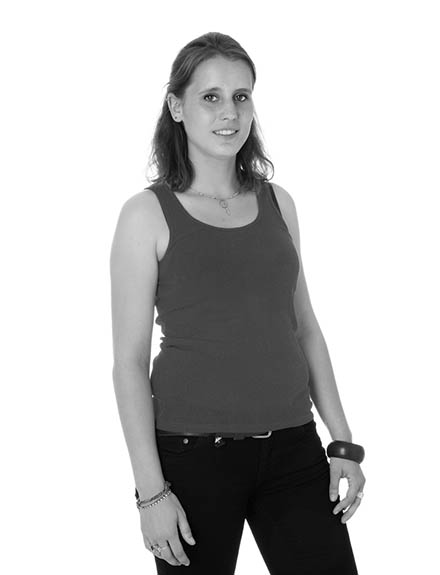| marie-hélène le ny |
|
photographist |

|
“I
spent my Year 10 internship at the Louvre museum in the
laboratory that was working on the restoration and analysis of
artistic works. I discovered that science was somewhat like a
police investigation in which small elements could help to advance
major issues. This sparked my curiosity and made me want to study
biology. I decided to focus on human biology and more specifically
virology. Viruses have a system that will hijack the cellular
system to survive. I am starting a thesis on arboviruses
and their interaction with insects. Arboviruses are viruses like
dengue and yellow fever that have a significant impact on health
and are transmitted by insects. We are trying to understand why
mosquitoes that transmit the virus do not contract the disease,
unlike humans who, in some cases, suffer serious illnesses.
The human cell has a nucleus containing DNA which encodes genes that are involved in the production of proteins. These proteins activate cells in tissues and organs. This DNA has an intermediary before its translation: this is the Ribonucleic Acid produced in the core, which leaves the cell nucleus, enters the cytoplasm and initiates the translation of the RNA into proteins. RNA is a complementary sequence of DNA. There are viruses that have a DNA genome and others that have an RNA genome. By better understanding the immunity of this insect we will be able to develop tools to limit infection from these arborviruses, particularly those affecting humans. During my thesis I would like to work as a teaching assistant at the university to share what I have learned and to motivate young people to get involved in research. It is important for the technical and scientific evolution of French society.” |
||
|
Marine Petit PHD student, University Paris 6 and Institut Pasteur |
|||
|
|
|
|